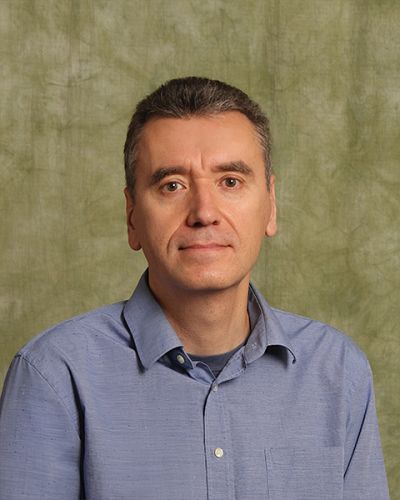Physics MS Program
This program is for students seeking careers in applied physics or in research and development in industrial laboratories. It is also intended for technical personnel in industry who wish to attain a higher level of understanding of the physical principles on which modern technology is based.
The MS degree requires the completion, with at least a B average, of 30 credit hours of graduate work and satisfactory performance on a comprehensive examination, or the completion and defense of an acceptable thesis. The courses are normally selected from the required courses (shown below) and other graduate courses offered by the department. A number of courses within the Physics Department have been designed with an emphasis in applied physics. A student's selection of courses must have the prior approval of the Graduate Committee.
Under the examination option, the candidate must pass a comprehensive examination prepared by the Graduate Committee, covering the basic principles of physics and applied physics and the student's special area of interest.
Under the thesis option, no more than six credit hours of PHYS 599 may be counted toward the 30-credit requirement for the degree. After submission of the thesis, the candidate must pass an oral examination on the material pertaining to the research area.
MS required courses
The following courses are normally required as part of the 30-credit requirement:
-
PHYS 521 Analytical Dynamics
-
PHYS 522 Electrodynamics I
-
PHYS 524 Quantum Mechanics I
-
PHYS 527 Graduate Laboratory (This requirement may be waived if a comparable course is included in previous coursework.)
The following courses have been designed with an emphasis in applied physics. PHYS 511, 514, 563 or 572 may be substituted for PHYS 521 and/or 524 listed above.
-
PHYS 511 Statistical Thermodynamics
-
PHYS 514 Methods of Theoretical Physics
-
PHYS 563 Coherent Optics
-
PHYS 565 Laser Physics and Quantum Electronics
-
PHYS 567 Integrated Optics and Electro-Optics
-
PHYS 569 Non-Linear Optics
-
PHYS 572 Introduction to Solid State Physics
-
PHYS 573-574 Applied Solid State Physics and Devices I, II
-
PHYS 581 Contemporary Topics in Applied Physics
Because of the breadth of the field of applied physics, each student's coursework is carefully planned to tailor the program to meet the individual's particular interests and needs. All students, on entering the program, meet with the director of graduate programs to plan their curriculum, and the department's graduate committee oversees students' progress.
For more information

Alexey Kolmogorov
Professor, Graduate Director